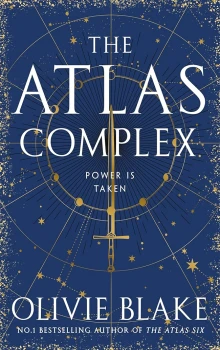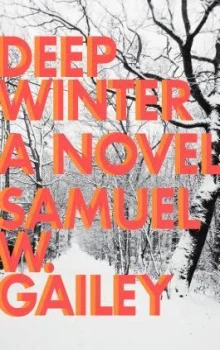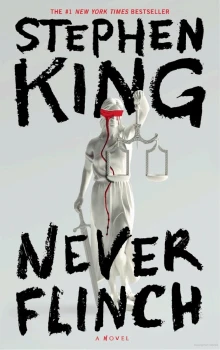25
Somehow there was music.
It bloomed from inside him and became something else, something he could touch. So he reached out to it. He opened his eyes and saw Grazina’s face hovering above him. He was splayed on the couch and holding her hand as though she was about to pull him up. All around him was the voice of some warped, demented angel, crescendoing into trilling, pitched notes.
“Sergeant Pepper? You’re alive. Quick, they have music here. Music. In an abandoned church!”
He sat up and blinked until Grazina’s living room clicked into place. There was something spinning on the record player on the sideboard. “Who is this?” he said over the blaring music.
“What?”
“Who the hell is this?”
“You don’t know?” She looked at him open-mouthed. “It’s Gene Pitney. Hartford’s pride and joy.”
“Hartford? Aren’t you in Europe right now? Aren’t I Sergeant Pepper?” The record sounded like a man singing while being flushed down a toilet, the cherubic voice cut with prancing desperation.
“Oh, yes. Why, of course you are!” She sniffed the air, nodding. “Smells like England, Sergeant Pepper.”
“Why’s that?” He pretended to look around the streets.
“Salt in the air. Seawater.”
“Then we’re close.” He was trying to catch up; it must have been hours since the salamanders flooded over their feet. “Do you remember your orders?”
“To kill anything that moves.” She picked up a comb from the coffee table and held it up like a weapon.
“No, to get to America at all costs. Don’t you remember your promise to your father, the baker?”
“Of course,” she said, finding Hai’s eyes. “I’m meeting him in New York.”
The digital clock on the VCR read 3:40 p.m. Twenty minutes before social services was to come and end the twilight zone they’d been trapped in.
He walked to the kitchen, trying to think of a plan—but all he found was Maureen’s R2-D2 penis statue on the table, somehow larger than before. He tucked the giant penis under his arm, opened the pantry door, and stood staring at the saltine boxes chewed through by mice, and felt sick to his stomach, the house suddenly a tiny cage, nowhere to go, not enough doors.
“They’ve sent their spies after us. I can tell,” she whispered at his back. “They’ve been following us for days. Two little girls. They use children now, you know. So you won’t suspect it.”
He was barely listening. He was trying to pretend their pretending was real—when it came to him. “Okay.” He turned around so fast she jerked back. “I got it. We can dupe ’em, those little girls. But you have to follow me out of this church. Don’t grab anything. Just make a run for it, okay?”
“They’re coming, Pepper. I hear them upstairs. Here, put this on; it’s colder than you think.” Before he knew what was happening, she was pulling her owl sweater over his head and yanking his arms through.
“You’re the best honorary soldier I’ve ever met,” he told her. “Even better than the real ones. Ready?” He took her hand and they rushed for the front door, Gene Pitney’s “Only You” blaring on the record player, his voice carrying them through the air, making it feel like they were riding it, floating out on his high, jittery runs. The pride of Hartford County sending them into Hartford County.
Outside, engulfed in a fog so dense it made everything appear underwater, he helped Grazina onto the motor scooter, then sat in front, setting the R2-D2 between his legs, and fired it up. It let out a weak electric moan but managed to pulse forward. He headed to the only place they could go, toward the dead end. Pitney’s voice wailed through the opened front door as they whirred down the potholed street, the river to their left roving in bulbous globes like some primordial serpent molting its skin.
“You ready?” he shouted over his shoulder.
“For what?”
“To land in America. We’re coming close now.” The fog was so thick the houses on both sides had evaporated. The scooter seemed to be floating through nothing.
“How do you mean?”
“That wasn’t a church back there,” he said. “It was a chapel on an ocean liner. We already docked this morning. Everybody’s already gone.”
The scooter thumped along and she was quiet for a moment. “We’re here, then? We’re really here?”
“Almost.” He twisted the speed throttle, to no effect.
“Wait. Am I old now? Am I old or am I still in the war?”
“No, no. Don’t do this now. You’re in the war and your name is Grazina Vitkus and you’re seventeen years old. There’s war everywhere, alright?” She seemed genuinely scared, and he started to unravel. “Hitler, Stalin, Germany, the fishhook, Auschwitz, Dresden, Saigon, Iraq, Gettysburg. Remember? Your dead brother, the lake, the bakery. No, don’t look back. Look forward. Don’t you look back now!” He pulled at her arm until she stared ahead. They were at the end. He tried to do a U-turn, but the wheels caught on a pebble and stalled. He kicked at the ground and wheeled the scooter about, and that’s when he saw the patrol car’s blue lights cutting through the fog. They were already there—early.
Slowly, he inched the scooter forward. It didn’t occur to him that this would be the last time he’d be with her. For reasons he couldn’t explain, he nearly lost it when he saw her dove-colored socks rolled down to her ankles.
“I feel like I’m in the middle of something,” she said in a worried voice. “There’s no floor or roof to me. Where’s Lina? Did she ever get to see the salamanders?”
“She’s in Texas. And you are in the middle. You’re in the middle of two countries, but now you’re coming to a new one called America, okay? Where you were always headed. You always wanted to be here, remember?” he shouted over the current.
“But I’m losing,” she said into his ear. “I’m losing the beginning. Where’s the beginning?”
“It’s right there, ahead of you.” He pointed to the sloping house emerging from the mist, the police lights swirling outside it. “You’re gonna go and you’re gonna get married in that house up ahead. You’re gonna have two beautiful, talented, and kind children who will love you and tend to your every need until your very last breath.” His eyes were so wet he thought he was having a seizure as the cloud line on the horizon lifted above the river and a blade of amber light slashed through the valley, diffusing the fog and alighting on the slate streets with a Nordic glaze, gold and grey everywhere. The houses came back into view, their gaping jaws ransacked and mugged. He heard their voices, or imagined them, the people who once roamed the wallpapered rooms, asking for one another, calling out to names lost to every ledger in history. The river sloshed somewhere to the right of him, the swirling lights coming closer.
“Where’s the book you wrote, Sergeant Pepper?” she shouted, conflating, at last, all his forgeries into one name.
“I fucked up! I chose the wrong story to live in.” He felt something on his cheeks and realized she was wiping tears from his face. Pitney’s voice returned as they approached the house.
“Mother Mary bless you, Sergeant,” she said as the lights blued his hands. “Bless the demons in your soul. You’re a brave soldier. And brave soldiers get broke in the brain when they come home. But what’s after America?”
“I don’t know what to do. I don’t know what happens now! I’m just a kid, okay? I’m not a sergeant of anything. I don’t know which crumb of the corn bread becomes corn cake. I don’t know when a person becomes somebody else.” His voice was breaking in the wind. “I wish I could take you somewhere but I can’t, Grazina. I don’t have anywhere.” He put one hand up to indicate to the officer ahead that he was harmless, then spoke into her ear. “Don’t you want to go to the new world?”
“I’m not sure.”
“Well, you don’t have to stay there. You can go deeper into it and see. And maybe you’ll go right through it, like a door. America is just a big old door, okay? Look—your son is waiting for you. He’s the door. The door you made.”
“Lucas? He’s not born yet. He’s inside me—I feel him kicking.”
Agitated voices, spilling out from the cars, were cutting through.
“He’s both inside and out of you at once. Like you and me. Golden Triangle.”
“Labas?”
Lucas was walking out of the house, trailed by the cop, and cursing. The nurse was digging into a bag, taking out a stethoscope.
“Yes?”
“In the chapel, back on the boat. I’ve hidden a stack of money in a cookie tin in my room. Take it. My payment to you for getting me across. I can see my father now.”
“Don’t worry about that. Just go with them, okay? They’re gonna take you to get processed, then you can work to be a citizen. Like me.”
“Will I see you again? Will you visit?” For a moment her face was stricken. Then everything drained away and she glanced about, confused.
“Of course. And I’ll bring—”
Before he could finish, the officer, who was actually a security guard from the Hamilton Home with a tattoo of a diamond under his left eye, grabbed Hai’s arm and brought the scooter to a halt by jamming his boot on the wheel. Lucas and the nurse swooped in and took Grazina by the hand. It was all in slow motion. He stepped off the scooter and walked forward in a trance, not caring what they did to him, as Grazina was being ushered into the van, muttering in Lithuanian.
But where was she going? She was going to a place where freedom is promised yet made possible only by a contained egalitarian space fashioned with walls and locks, where measured nourishment is delivered each day through long corridors by staff born from a never-ending elsewhere who forgo watching their own children grow up in order to watch strangers grow old, all this to keep you alive so they can suck up money from your bank account while you’re warm, immobilized by tranquilizers, and satiated and numb, a body ripe for harvest even beyond ripening. She was heading to America after all. The truest version of it. The one where everyone pays to be here.
“Come on, Mom, we got you. You’re safe now.” Lucas and the nurse guided Grazina into the van, her white hair disappearing, then reappearing behind the glass. “Look, I get it.” In the wind, Lucas’s face had purpled to the shade of freshly sawed ham. “You’re just a kid. And I don’t know what you two were up to. I don’t need to nor wanna know. I can tell my mother liked you, okay? And that’s fine, but she’s not well. And you are clearly sick also. I mean, look at this,” he said to the guard, and gestured to the sculpture clutched to Hai’s chest. The guard shook his head in disgust, saying something he couldn’t hear. “Look at him.” Lucas’s gaze lingered on Hai’s scabbed-up lip. “He’s mentally ill. I mean, why did you make a penis, dude? It’s so weird. And you’ve been taking care of my mom?”
“It’s an R2-D2.”
“A what?” Lucas opened the passenger door and hopped in. “Just get us out of here, Tonya. I’ll come back and deal with the house later.”
“She likes Stouffer’s,” Hai said. “Make sure you get the Salisbury steak from Stouffer’s.” He stood open-mouthed as the van sped off, the security car following behind, its patrol lights still blazing. “With the brownie in the corner,” he said to himself, mist swirling around him. “With rainbow sprinkles.” Gene Pitney’s voice, still playing on the record inside, was flowing through a cracked window as the car lights faded. He stood for a while listening to it all, letting the air flow over him. Then, clutching the R2-D2 penis to his chest, he walked away from 16 Hubbard Street. And for the first time since the last brick was paved into place over a century ago, the street was truly empty.
He walked in a dazed aftermath. In the silence the birds called out to the waning day, as if after a flood. He sensed a change and glimpsed, over the highway ridges, new buds forming on shrubs along the riverbanks as the valley rolled away beneath him under sprays of broken light. Nestled in a whorl in the current was a burst of pink confetti swirling away from him, the result of cherry blossoms at the 9/11 memorial off I-91, bloomed and shattered by a north wind a mile upstream.
Crossing King Philip’s Bridge, he recalled, from a high school history class, King Philip’s ultimate fate. How his uprising was put down by the colonizers and how Philip, also known as Metacomet, was subsequently beheaded, his skull displayed on a stake for twenty-five years as a warning to other Native chiefs against reclaiming their lands. He felt every footstep over the rail ties as he crossed, wood cut from another time, hammered into place to carry the living toward whatever traps them.
It was late afternoon by the time he made it to town. The sun, stronger now in the season, had burned through the fog, bathing houses in a benevolent warmth, lending a butternut glow to the lawns with faded umbrellas left out all winter. In one of the front yards he passed, a cracked kiddie pool was filled with dirt, and April’s first tulips were peeking over the lip. Some yards had a mother or father at the edge of them, home from work, just steps from the car and still in retail uniforms, simple slacks and button-ups, floral dresses, name tags glinting, aiming the hose over whatever might grow. One man diffracted the spray with his hand to cover a patch of soil no larger than a greeting mat. Some of them nodded vaguely in Hai’s direction as the sound of sprinklers on both sides filled the air and he passed through the place that made him. He took out the orange pill bottle, swallowed the last half handful, then chucked it into a flowerpot and pushed on. He thought he saw early fireflies blink through an alley between two houses and envied them their inner resources.
In a few weeks the roads will be filled with bike spokes you can hear from your room at night, so clearly that you have to put down your book and look out the window to see what propels a person so fast through so much summer, the gasoline sweetness of young skunks and lilac blossoms wafting through the window as a deep urge to make something, anything, mounts in your chest and you decide, once and for all, to plot your escape from whatever tiny name on the map has tried and failed to claim you.
It must have been evening by the time the HomeMarket sign came into view. He passed a telephone pole where, in the coppering filament dusk, a splash of violet snowdrops fanned out from under the base as if tossed from a passing car, remnants from years of memorial bouquets placed to mark where Rachel Miotti was last seen alive, now gone to seed and wildflowered.
He approached the back door, where he sat down on the milk crates and held his head in his hands. It wasn’t his shift, but having nowhere to go, he went toward order, consistency, discipline—but mostly toward these people, these little people who make the world turn by making food faster than we have ever prepared it in the history of our species.
It was dinnertime and a car passed him circling the drive-thru as Russia’s voice came through the speaker, asking how he could help them. Hai wanted to laugh at the question, absurd in its sincere and brutally reduced proportions.
After a while the door opened.
“Hai? What are you doing here?” It was Sony.
“Here to do my job.”
“But you’re off today.” He tilted his head. “Looks like your lip’s healing at least.”
“Who knew Asian Ulysses S. Grant would have such a heavy right hook? What about you?” He squinted at the fluorescent lights behind Sony. “Aren’t you fired?”
“Maureen’s knee is hurting, so BJ asked me to work one shift. She’s paying me in cash. Hey, where’s your UPS jacket?” Sony pointed to the white owl on Hai’s sweater.
“Fuck.” Hai looked around helplessly, dismay lodging inside him. He had left Noah’s jacket back at the house, still hanging on a hook in his room, along with his unfinished copy of The Brothers Karamazov. He thought of running back to fetch them but remembered that, in the commotion, he had also lost his glasses. Maybe that was why the walk over looked so beautiful—numinous and faraway. He looked down at the owl on his chest staring up at him, then took a deep breath and collected himself, his eyes drifting to the abandoned apartments across the lot, their broken windows. “Hey, Sony?”
“Yeah?”
“You gonna be okay? Like, really okay?” The knots in his jaw showed.
Sony’s sneakers grated the sand as he pushed a pebble to the side, then toed it back. “You know Lee kept fighting after his defeat at Gettysburg, even when he was down to just twenty thousand men—down from one hundred thirty thousand at the start of the war—and it was ten against one?”
“Did he?”
“Yeah, and it was considered immoral by many scholars. All hope was lost, but he was too proud and stubborn to give up. I always felt bad for his horse, Traveller. Imagine being a horse and walking around all summer without knowing you’re a loser.”
“I wish I was a horse,” Hai said.
“Did you know they can gallop up to forty miles per hour for ten full—”
Hai was staring at the scar on Sony’s head, the evening light reflecting silver in its valley.
Hai remembered the plaster penis sitting on the ground between his feet. He flipped it upside down and dug into the hole at the base, removing a roll of wax paper.
“Oh, you brought Maureen’s monument…”
“Here.” He handed it to him. The paper crinkled in Sony’s hands as Hai stared at the tenements, the spring weeds already creeping along the Reagan-era fencing.
“Oh my goodness.” Sony’s voice was elsewhere inside him. “No, no, you can’t. How?”
“Listen now. That’s enough to get Aunt Kim out and then a bit more for a deposit for an apartment for you both.” After the diner last night, Hai had stopped by an ATM and emptied his account. That plus what he took from Grazina’s tin box that afternoon would be more than enough. He had shoved it into the statue while she was gathering things for their great escape.
Sony tried to ask more questions but started to stutter.
“I’m sorry,” Hai managed.
“For what? You didn’t—”
“You don’t even know…And you don’t have to.”
Sony pressed the bundle to his chest and squirmed, grinning with all his teeth like a child filled to the brim. A car passed them from the drive-thru, the guy giving them an odd look as he rolled up his windows.
“Go on,” Hai nodded to the store. “Go tell ’em the good news. They could use some good news.”
“Hey, BJ! Hey, Wayne!” Sony shouted with delight as he ran inside. “You gotta look at this. Look at what Hai did! Look what my big cousin did!”
It was Hai’s chance—he crossed the lot and stepped over the warped chain-link fence on the other side. The dead grass was high as his waist as he passed the spray of used needles on the pavement, then beyond that, until he was in some sort of courtyard surrounded by boarded-up windows. There were benches with broken seats, wooden planter boxes where a community garden once stood—all of it empty now, the ground littered with glass, a few stuffed animals, fast-food wrappers, spent bottles of single-shot liquor, and cigarette packs. Old furniture and black-rusted shopping carts lay among the detritus.
At the courtyard’s far edge, beside a tipped-over washing machine, was a green Waste Management dumpster. He walked over to it, his head feeling boneless, and ran his hand along the lid, then lifted it and peered inside. It was only half empty. Hugging the R2-D2 penis, he pushed the lid open and climbed inside. Dry and warmed by the day’s sun, it was mostly filled with black garbage bags and dead leaves. He lay back on the bags and kept very still. Inside the dumpster, the noises from the street arrived altered, their octaves warped, subdued, as if the city that once touched him was now further away.
He thought of all the people who once drank and ate from the cups, the wrappers and boxes now stuffed in black bags that buoyed him toward what he was always becoming: lifted by what this town refused. The trash was no longer just trash—but evidence. Because to discard is to move on. Inside the dumpster, he was pressed on all sides by human forwardness. Everything’s a room, he realized, too late. The cars on the interstate nothing but rooms with wheels. The endless prescription bottles. And the body, too, a room, and so is the heart. So is the cell in the blood spilling back to the world, only to be contained by more world, which keeps even the atoms that make up the Styrofoam cups and trays sloughed daily from the back of HomeMarket. The average lifespan of a take-out container is one minute and forty-two seconds. Lying on garbage was the closest to weightlessness he’d ever been, and he wondered if this was what it was like for the astronauts floating in outer space, their soft bodies held by their suits. We always belong somewhere, if only to whatever’s holding us, and shouldn’t that be a good thing? To have your uselessness become a marker of time, waste being the proof of having lived at all? He had successfully thrown himself into the trash, and the act was so complete, so total, it felt clean. He was a container inside a container filled with containers contained by space—and somehow this made him full.
The bag beneath him started rattling. He looked down and realized his phone was vibrating. He flipped it open and said hello.
It was his mother.
She sounded tired, as if she had just finished returning enormous things to where they belonged. She wanted to know when the semester ended, when he would come home. She wanted to make a big feast, and asked if he could buy the long incense sticks from the Chinese grocer in Boston for Bà ngoại’s altar—the small ones burning too quickly. She talked about this new hummingbird feeder she had bought at Home Depot, and as she went on, he heard, in the distance, Russia’s soft, gentle voice float up from the drive-thru speaker.
And he was reminded of what they did there. That somewhere, right now, someone is waiting in line asking to be satiated. And those who serve them, who lord over nothing but a stainless-steel counter and its crumb-speckled dominion, stand at the end of the line saying, again and again, How can I help you? Because our kind has built a box using four walls and a roof and called it HomeMarket, called it McDonald’s, Wendy’s, Burger King, Burger Chef, Subway, Panda Express, Pizza Hut. Centuries from now, when the cosmos are no longer mysteries infinitely multiplied by syllables, they will unearth the ancient and mildewed libraries and understand us as the epoch that reheated chemically preserved sustenance we never cooked under red roofs, from which we asked How can I help you? endlessly, day and night, through droughts and earthquakes, through wars and floods and assassinated presidents, fallen towers and allegiances, impeachments and suicides, through birthdays, some so insignificant they will be forgotten even by those they crown, knowing so little can be kept—not even the gnomic words that nonetheless birth the histories between two people: Hello, Hai, Labas.
“How can I help you?” Sony was saying now as a woman stepped up to the counter, her hair disheveled from the day, single mother to the two girls swaying beside her. They were beaming because this was their treat, for they had waited all day for their mother to come home from her shift at Lefty’s Bar and Grille, and had spotted the red roof from all the way down the street, screeching as they hugged and kissed her neck, as the car became a singular kingdom of joy. She looked up now in self-abandonment, finger on her lip, scanning the menu like it was a map for a way out of here. “I don’t know what I want,” she mumbled to herself. “Oh, what do I want, what do I want?” And Sony’s fingers hovered over the screen, ready to manifest her wish. Because whatever it was, they’d have it. For they never run out, not for long.
Hai lit a cigarette, taking a long drag as he peered through the dumpster’s opened door. He saw, framed in a perfect square, the twilit sky teeming with the faint trace of stars above him. The same stars that will be shining two years later—when Russia gets his sister, Anna, through rehab, which will finally stick the fifth time. When Wayne moves back to North Carolina to start a smokehouse called The Knighthood. When the growth in Maureen’s breast returns, this time with bad cells, and she gets a mastectomy and moves in with her brother in Defiance, Ohio, knitting scarves for the local church in her wheelchair as the sunlight slides each day from her lap to the hardwood. But she’ll pull through despite the lizards, living longer still than her little boy. And Aunt Kim will move into an apartment with Sony in Manchester, where they’ll both work at Canetti’s ravioli factory while Sony studies at night to be a docent for the New England Civil War Museum in Vernon. And BJ will end up managing the HomeMarket in the airport, and also partnering with Miss Magician’s daughter, Abra Kadaver, to become the New England Regional Women’s Tag Team Champion, her entrance song full of banjos and her new gimmick being a face-painted fast-food manager named Over Time. Tom the mechanic will finally get his “Dominican” ear, the skin an exact match save for the seam, which widens to a hole as he takes it off at night to sleep beside his wife. Seven months after leaving 16 Hubbard Street, Grazina will pass away one afternoon during a nap at the Alzheimer’s facility in Rhode Island where she was transferred, her headstone reading, as per her will, GRAZINA M. VITKUS 1929–2010. Loving wife and mother—with an American flag etched on each side. A handful of leads will come in for the murder of Rachel Miotti, one of them naming a beige SUV caught on CCTV a few blocks from HomeMarket, cause for her mother to do another round of TV interviews, but the breaks won’t come and to this day no arrests have been made.
Within five years, the turnover in the store will be so complete that none of the original crew will be left at the HomeMarket on Route 4. But the HomeMarket will still stand—undefeated—an entire new team, like a new set of organs, implanted and running the same shifts inside its concrete walls. The only sign that they were ever there will be a faded Chewbacca sticker Maureen had placed in the back of the broom closet, next to the industrial tubs of BBQ sauce.
“Are you busy now,” Hai’s mother said on the phone, “or is the school closed for the day?”
“Colleges don’t really close, Ma. They just kinda sit there with the lights on.”
“That’s right. It’s not a nail salon,” she chuckled. “You learning anything good? Tell me something new that you learned. About medicine.”
“Okay.” The bags crinkled under him as he shifted. “Well, it’s crazy you called,” he clutched the R2-D2 penis to his chest, “cause I’m actually in the lab right now, dissecting a body.”
“Really! My goodness, you mean a real person?”
“I’m the last one in here, staying late, just trying to do one more,” he said, the dark creeping along the iron walls.
“You mean cutting open a corpse? An actual corpse? You’re kidding.”
“Wish I was. But it’s incredible in here, Ma. A miracle of evolution.”
“What’s it look like in there? Is it bad of me to ask? Does it look like the meat at the Chinese butcher? Oh, those poor people. You’ll have to pray for them.”
“It’s for science. They’ve donated their bodies to improve our knowledge. They wanted this.”
“What’s it look like in there, son? I got goose bumps just thinking about it.”
He pushed his invisible glasses up his nose and saw above him a constellation he had failed his whole life to name, one of its stars shuddering between two chemtrails drawn across the dimming sky.
“Space,” he breathed, the cold seeping through his sweater. “There’s so much space you wouldn’t believe it.”
“Yeah?” Her voice grew faint. “Even with all the organs and arteries jammed up in there? All that blood?”
“Yes,” he gasped into the dark, like a boy seeing his name in ink for the first time, “there’s so much room in a person, there should be more of us in here. There shouldn’t be just one.”
There was a long silence, the sound of his mother thinking.
That’s when he realized he’d been falling this whole time—he just couldn’t feel it, the trash forming a zero-gravity cushion beneath him. “I’m scared, Ma,” he whispered.
“Of what? What are you talking about?”
“Of what’s coming. Of the future—it just seems so big.”
“That’s only because you’re young. Eventually, it gets smaller. But don’t be afraid of life, son. Life is good when we do good things for each other.”
He mumbled something else, the cigarette in his fingers down to the butt.
“What was that?”
“Tu esi mano draugas.”
“I can’t hear you. Can you—”
“Nothing, Mommy,” he whispered in English, an insane beam of love for the world lancing through him. “I was just drifting.”
And that’s when he heard it—not the river’s rush, but the hogs.
Dragged by their hooves into the emperor’s butchery, they were screaming from a galaxy far, far away, inside him. And they sounded just like people.
Soft, simple people, who live only once.





